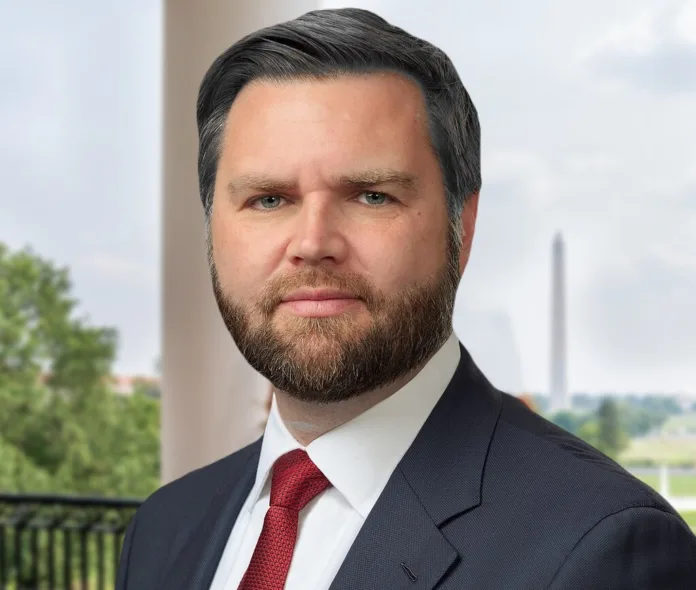Jd Vance addresses criticism over his 2021 comments targeting childless democratic politicians, emphasizing his stance on family values
JD Vance, the Republican Senate candidate and Donald Trump’s vice-presidential pick, has come under fire for comments he made in 2021, which have resurfaced and sparked controversy. During an interview with former Fox News host Tucker Carlson, Vance criticized some Democratic politicians for being childless, labelling them as a “bunch of childless cat ladies with miserable lives.” This remark has recently drawn backlash from various quarters, including Hollywood actress Jennifer Aniston.
In his defence, Vance appeared on “The Megyn Kelly Show” on Friday, clarifying that his comments were meant to be sarcastic. He argued that the focus should be on the substance of his argument rather than the sarcasm. “The substance of what I said, Megyn – I’m sorry, it’s true,” Vance asserted. He explained that his criticism was aimed at the Democratic Party’s perceived stance against family values and child-rearing, rather than individuals who cannot have children for medical reasons.
Embed from Getty ImagesVance’s original remarks questioned why some leading Democratic figures, including Kamala Harris and Pete Buttigieg, did not have biological children. Harris, a stepmother to her husband Doug Emhoff’s children, and Buttigieg, who adopted twins with his husband Chasten, were among those Vance mentioned. He argued that the Democratic Party’s policies appeared to be “anti-child,” and suggested that those without children lacked a direct stake in the country’s future.
The backlash has been significant. Jennifer Aniston, who has publicly discussed her struggles with fertility and in-vitro fertilization (IVF), criticized Vance’s comments, expressing disbelief that such statements were made by a potential vice president. Pete Buttigieg also responded, highlighting the personal struggles he and his husband faced during their adoption journey, which Vance’s comments seemed to overlook.
Vance’s remarks have not only stirred controversy among celebrities and politicians but also prompted a broader discussion about family values in political discourse. Chris LaCivita, Trump’s co-campaign chairman, defended Vance, reaffirming his support for the vice-presidential candidate. LaCivita emphasized that Vance was a strong choice for the campaign and that Trump continues to support him.
Despite the backlash, Vance remains resolute in his stance. He clarified that his intent was to criticize what he views as a broader cultural shift away from family-oriented values, rather than to demean individuals who face difficulties in having children. The controversy highlights ongoing tensions in political and social discussions about family dynamics and personal values.
Analysis:
Political: JD Vance’s comments have become a flashpoint in the broader debate over family values in politics. His remarks, while intended as a criticism of Democratic policies, have been criticized for their insensitivity towards individuals who cannot have children. This controversy underscores the polarized nature of current political discourse, where personal attacks and inflammatory remarks often overshadow substantive policy discussions.
Social: Vance’s comments reflect societal tensions regarding family structures and values. The backlash from celebrities like Jennifer Aniston and politicians such as Pete Buttigieg highlights the personal impact of public statements on individuals dealing with infertility and adoption challenges. This incident underscores the need for more empathetic and nuanced discussions about family issues in public discourse.
Racial: The controversy does not directly address racial issues but intersects with broader discussions about societal values and inclusivity. The focus on family structures can inadvertently impact marginalized communities, who may face different challenges in accessing support and resources for family-building.
Gender: The debate touches on gender dynamics, particularly regarding women’s experiences with fertility and child-rearing. Aniston’s criticism highlights the gendered nature of the comments, as women often bear the brunt of societal expectations and personal struggles related to family-building. Vance’s remarks have been criticized for their lack of consideration for these gender-specific challenges.
Economic: While not directly related to economic issues, the controversy highlights how political discourse can influence public perceptions of policy priorities. Discussions about family values and support systems can impact policy decisions related to healthcare, child care, and social services, reflecting broader economic implications for families.
